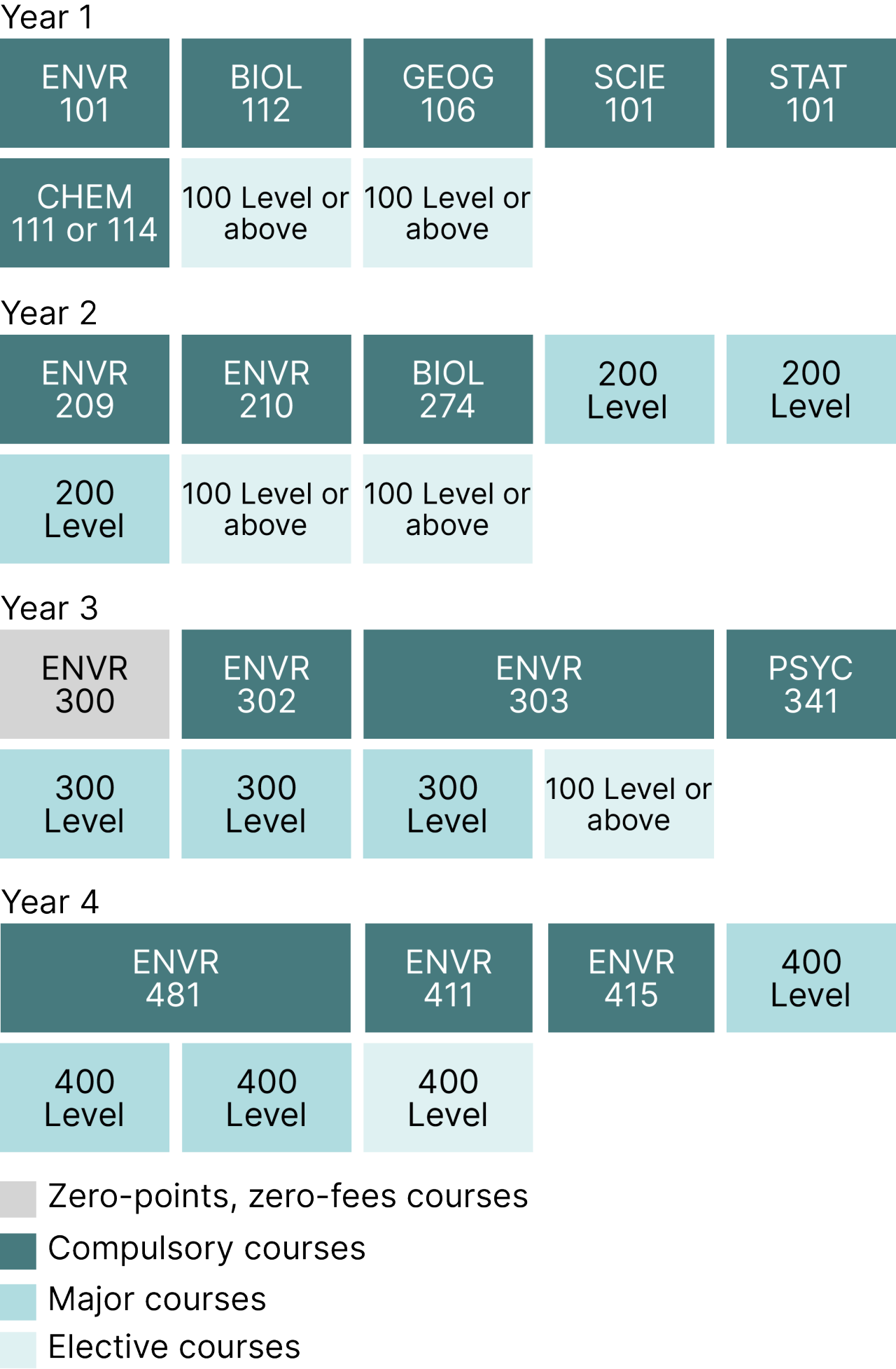Bachelor of Environmental Science with Honours
- Degree Structure - Start In
- Semester 1 or 2 (February or July)

Discover ways of protecting our planet from disaster, climate change, and human activity.
480
This degree will give you skills and the practical learning you will need to address the pressing environmental issues we face — in Aotearoa New Zealand and globally.
Various disciplines of science intersect in this programme to create a layered understanding of complex sustainability challenges we face — for example in freshwater resources, marine contamination, coastal erosion, biosecurity, natural disasters, and climate change. You will assess impacts resulting from disasters, ecological change, and human activity.
The BEnvSci(Hons) is accredited by the Environment Institute of Australia and New Zealand (EIANZ) to deliver environmental practitioners for roles in industry, government, education and research, and the community.
Admission to UC with University Entrance (or equivalent) is required to enrol.
If English is your additional language, you are also required to meet UC's English language requirements.
See Admission and enrolment for all information on enrolling at UC.
The BEnvSci(Hons) is open to anyone with entry to the University.
While no particular background is required, secondary school subjects such as biology, chemistry, geography, and sustainability are good preparation. Most important is a passion for the environment and our role as kaitiaki protectors of our natural world.
The Bachelor of Environmental Science with Honours requires a minimum total of 480 points:
A minimum of 120 points must be from courses at 400-level.
You will also complete 400 hours of practical work through ENVR300 Environmental Science Work Experience (0 points, 0 fees).
The degree takes 4 years of full-time study, or can be studied part-time for up to 8 years.
For the full degree requirements, see the Regulations for the Bachelor of Environmental Science with Honours.
All 300-level courses in the degree must be completed before proceeding to the final year. ENVR302 and ENVR303 must also both be completed with a B Grade Point Average.
If you are not successful in gaining a place, you may instead be awarded the Bachelor of Environmental Science (without honours), or you can normally credit completed courses to the Bachelor of Science or other UC degrees.
The Bachelor of Environmental Science with Honours is a highly diverse degree, including introductory courses, hands-on fieldwork and internship placements, and courses towards a major subject from the second year.
100-level
CHEM114 is recommended if you have not taken Year 13 chemistry (or equivalent) at secondary school.
Plus complete the required 100-level courses from your chosen major.
200-level
Plus complete the required 200-level courses from your chosen major.
300-level
Plus complete the required 300-level courses from your chosen major.
ENVR302 and ENVR303 must both be completed with a B Grade Point Average to move onto the next year (or may instead be awarded the Bachelor of Environmental Science).
400-level
Plus complete the required 400-level courses from your chosen major.
You will also complete 400 hours of practical work through ENVR300 Environmental Science Work Experience (0 points, 0 fees).
You can choose to take this course during the summer months (November—February) in either year 2 or 3 of the degree.
At least another 45 points (up to 90 depending on your chosen major) need to be chosen from the below two groups.
Group 1
Choose 30 points from the following elective courses, or any language courses:
Group 2
Choose your remaining points from the following elective courses, or courses chosen from the following subjects at 100 to 400-level.
Depending on your major, at least one or more courses will need to be at 400-level.
2024 tuition fee estimate: $7,521 per 120 points
2025 tuition fee estimate: $7,972 per 120 points
2024 tuition fee estimate: $38,863 per 120 points
2025 tuition fee estimate: $40,380 per 120 points
2026 tuition fee estimate: $41,955 per 120 points
UC offers postgraduate studies in Environmental Science:
Graduates may also study a variety of related subjects in these programmes, such as Biological Sciences, Biochemistry, Chemistry, Disaster Risk and Resilience, Geography, or Water Resource Management.
You may also consider specialist studies available:
Find out more about what can you do with a degree in Environmental Science.

30 points of elective courses must be chosen from Schedule E: Group 1, with any remaining points chosen from Group 2.
Each small block represents a 15-point course. However, some courses may be 30 points or more.
This diagram is an example only – other combinations are possible. For specific course requirements, see the Regulations for the Bachelor of Environmental Science with Honours.